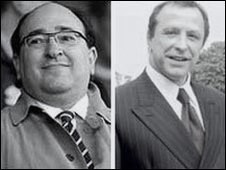Embrace failure urges Wikipedia’s Jimmy Wales

WIKIPEDIA founder Jimmy Wales stressed the importance of failure in his keynote speech at ACCELERATE 2013, yesterday’s conference in Liverpool that celebrated high growth businesses.
Mr Wales, a former futures and options trader based in Chicago, launched his first online venture – a food delivery service – in 1996 before the dotcom boom.
He stumbled through a number of other business ideas, including a search engine called Three Apes and the first encyclopedia idea Nupedia, before the birth of Wikipedia, an online encyclopedia and registered charity which has around 500 million visitors a year.
“The main thing you need to know about is there was an awful lot of typing,” he quipped, adding: “My key message for entrepreneurs is you need to be good at failure.”
Even after the success of Wikipedia another idea – Wiki Search, a search engine to rival Google – closed during the downturn. “At that time we had the VCs sending memos saying ‘get cashflow positive now are you’re going to die!'”
He conceded Wikipedia was a bad business because it gives content away, it doesn’t take adverts and asks the public to donate. He also recognised that his two big business tips are contradictory – to fail fast and to persevere.
“If you give up at any setback you’re never going to make it. But it’s important to fail fast. It’s hard knowing if you’re beating your head against a brick wall. You ask yourself, ‘should I move on or am I giving up too easily?'”
Mr Wales, who described himself as a “pathological optimist” added: “One of the things you have to look out for is people who tell you all the reasons why it’s not going to work.”
He said entrepreneurs can be helped by the right tax policy, the availability of funding and a more supportive culture.
“If you do a Silicon Valley start-up friends and family are excited and if you fail you can get a job at Google,” he said. “In Europe there’s a sense that if you fail there’s a huge black mark and your extended family might not be supportive. But the UK is not the worst. A young Korean told me his mother in law was weeping and telling him not to start a business.”
Wales’ wisdom
Fail fast: It’s easy to stick to an idea that’s not working out. You can end up wasting millions that way. Don’t tie your ego to a particular business.
Don’t wait for the perfect business idea: There’s this mythology that a massive, genius business idea will hit you and you’ll make a billion dollars overnight. That almost never happens. Most entrepreneurs learn through a string of failures.
Have the right people around you: My approach is always: “Everything will be fine”. I’m a pathological optimist so I surround myself with pessimists who tell me all the things that could go wrong.
Ignore all the rules: Be bold enough to change the way things are done.
Speaking to TheBusinessDesk.com, Mr Wales said there was “no magic bullet” for content-based web businesses looking to turn a profit.
The entrepreneur, who also runs the for-profit entertainment site Wikia, said online publishers have to explore all avenues and a hybrid model is probably the best solution.
“The New York Times does a nice job, there’s a significant amount of free material, an app selling access to some advanced material and some advertising revenue. There’s no simple magic bullet, all avenues have to be explored.”
He said the development of apps has made it simpler to buy content, citing the way he can buy material for his Kindle through Amazon without filling out credit card details.
“What’s interesting looking forward is we see business models evolve and change. With the Appstore type of model it’s now possible to sell content… it’s possible to have impulse purchases without having to pull out your credit card. That’s an exciting area for a content business.”
Wikia is now attracting 95 million unique visitors a month which makes it viable, said Mr Wales. “It’s viable to have an advertising supported model if you’ve that sort of traffic, and keep the costs down.”







